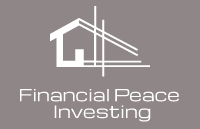In today’s world, the financial landscape is fraught with challenges that can hinder personal growth and stability. As we delve into the realities of our economic and social environment, it’s crucial to understand the obstacles we face and how they can impact our financial well-being and life choices. We have to honestly face these challenges, admit our deficiencies and seek solutions into the broader issues and the need for a higher vision to navigate these turbulent waters.
The Lack of Financial Knowledge in Education
One of the most significant challenges is the lack of comprehensive financial education in our schools. A study by the National Endowment for Financial Education found that only 24% of Millennials demonstrate basic financial literacy. This knowledge gap can lead to poor financial decisions, such as excessive spending, inadequate saving, and unwise investments.
Reflecting on my own experience, I realized early on how little I knew about managing finances when I first arrived in the United States. Despite having an advanced degree and a high-paying job, I was unprepared for the complexities of credit systems, tax planning, and investing. This lack of knowledge could have easily led me down a path of financial instability. However, recognizing this gap, I made it a priority to educate myself about personal finance, reading extensively and seeking advice from mentors. This proactive approach was crucial in making informed decisions about saving, investing, and managing expenses.
“Through education, you gain vision. Through vision, you gain the ability to spot economic problems and turn them into economic opportunities. However, you must be careful about what kind of education you receive.” – Why We Want You to Be Rich. Donald Trump
The Challenges and Opportunities of Today’s Generation
Today’s generation is navigating a unique and rapidly evolving landscape, marked by a dynamic job market and new economic pressures. While these challenges are undeniable, they also present opportunities for growth and innovation. Many Millennials and Gen Z individuals are eager to find meaningful careers and make a positive impact, often feeling that they must carve out their own paths in an uncertain world.
This eagerness can sometimes manifest as a desire for rapid progress and recognition in the workplace. Younger employees often seek quick advancements and significant rewards, which reflects their high aspirations and optimism about their potential. However, this drive must be balanced with a realistic understanding of career development. Building wealth and achieving financial security typically require time, discipline, and perseverance.
A significant challenge that today’s generation faces is the deeply ingrained culture of consumerism, which starts at a very young age. Despite constituting only 3% of the world’s children, U.S. children account for 40% of the world’s toy purchases. This disparity highlights a cultural trend where material possessions are equated with happiness and success. From early childhood, many are taught to seek gratification through the acquisition of goods, which can foster a sense of entitlement and an expectation for material rewards.
This consumerist culture often leads to equating happiness with owning more—whether it’s a bigger house, luxury cars, the latest gadgets, or frequent vacations. While these can be symbols of success, they can also create unrealistic expectations and financial pressures. Without the discipline of delayed gratification and the understanding that true satisfaction often comes from experiences and personal growth rather than material possessions, individuals can find themselves in a cycle of debt and financial instability.
Even as they grow older, many continue to struggle with these ingrained habits, leading to significant financial debt. The inability to delay gratification or save for future needs can trap individuals in a cycle where immediate desires take precedence over long-term financial health. This pattern not only jeopardizes personal financial security but also contributes to broader societal issues of consumer debt and economic instability.
Consumerism’s Influence on Personal Choices
Consumerism has a profound impact on personal choices in life and work. According to data from the Federal Reserve, the average American household carries around $6,000 in credit card debt, indicative of a culture that prioritizes consumption over saving. The constant bombardment of advertisements and the societal emphasis on material wealth and consumption can lead to compulsive spending habits. Many people find themselves trapped in a cycle of spending beyond their means, accumulating debt, and living paycheck to paycheck.
I have observed this consumerism firsthand, both in my personal life and among colleagues. The pressure to keep up with societal norms—such as owning a large house, driving a luxury car, or having the latest gadgets—can lead to financial strain and stress. In my own journey, I chose to live modestly and prioritize saving and investing over immediate gratification. This choice required resisting the lure of consumerism and focusing on long-term goals.
Increasing Population Relying on Government Support
An increasing number of people rely on government support for their basic needs, including food, housing, and healthcare. More people are receiving welfare benefits today than at any time in our nation’s history. From the latest data, in 2022, 77.3 million people were enrolled in Medicaid (23.5 percent of the population) and 38.3 million received Food Stamps (11.7 percent of the population). While these safety nets are essential, they also highlight a broader issue of economic dependency and insecurity.

The reliance on government programs can discourage personal responsibility and initiative, leading to a dependency that is difficult to break. This situation is exacerbated by a weakening social security system, with the Social Security Board of Trustees projecting that trust funds could be depleted by 2034 if no changes are made. This casts doubt on the viability of these programs for future generations.

During my early years in the U.S., I witnessed friends and acquaintances rely heavily on government assistance, struggling to break free from the cycle of dependency. These experiences underscored the importance of building personal financial resilience and not relying solely on external support.
The Tech Bubble and Economic Instability
The rapid growth of technology and digital markets has led to economic booms and busts, often referred to as tech bubbles. The dot-com bubble of the late 1990s and the more recent cryptocurrency and tech stock surges are examples. These bubbles create a false sense of wealth and stability, which can burst suddenly, leaving investors and workers in precarious positions.
Economic instability is further compounded by concerns about government fiscal policies, including uncontrolled money printing and the erosion of trust in the government credit that backs the dollar. According to the Federal Reserve, the U.S. national debt surpassed $35 trillion in 2024, raising concerns about inflation and the future stability of the dollar.
My career in technology provided a front-row seat to the volatility of this sector. I witnessed companies rise and fall quickly, often due to overhyped technologies or unsustainable business models. This experience reinforced the importance of diversification and risk management in investment strategies.
The Erosion of Personal Identity, Moral Standards, and Values
Beyond financial challenges, there is a growing sense of loss in personal identity, moral standards, and societal values. Many people feel disconnected, lacking a clear sense of purpose or direction. This societal drift can lead to aimlessness and a lack of fulfillment, as individuals struggle to find meaning in their work and lives.
A study by the American Psychological Association highlights rising rates of anxiety and depression, particularly among younger generations, linked to these issues. APA’s 2023 Stress in America survey found 18–34 and 35–44-year-olds were more likely than those 65 and older to report they feel “consumed” by their worries about money (67% and 63% vs. 13%, respectively). APA’s survey found that 74% of those ages 18 to 34 and 70% of those ages 35 to 44 say it’s harder to connect with people today than in the past.
The erosion of diligence, the pursuit of truth, and the adherence to strong values further compounds these problems. Without a moral and ethical framework, decision-making can become shortsighted and self-serving, leading to choices that are detrimental to long-term well-being and societal harmony.
The Reality of Living Paycheck to Paycheck
A stark reality for many is the absence of savings and the constant struggle of living paycheck to paycheck. The Federal Reserve reports that when faced with a hypothetical expense of $400, 63 percent of all adults in 2022 said they would have covered it exclusively using cash, savings, or a credit card paid off at the next statement (referred to, altogether, as “cash or its equivalent”). The remainder said they would have paid by borrowing or selling something, or said they would not have been able to cover the expense. This precarious financial situation leaves little room for emergencies, investments, or future planning, creating a cycle of stress and anxiety.
During my time in the corporate world, I encountered many colleagues who, despite earning significant salaries, had little to no savings and were heavily in debt. This experience highlighted the widespread nature of financial insecurity and the importance of financial literacy and planning.
The Need for a Higher Vision and Purpose
In the face of these challenges, it’s easy to feel overwhelmed or hopeless. However, it’s essential to recognize the need for a higher vision and purpose in life. This vision can provide direction, motivation, and resilience, helping individuals navigate financial and personal challenges with clarity and determination.
To address these challenges, it is crucial to encourage a shift in mindset among younger generations. Emphasizing the value of patience, hard work, and delayed gratification can help individuals develop healthier financial habits. It is important to teach that true satisfaction and happiness are not solely dependent on material wealth but can be found in personal growth, relationships, and contributing to the community. For me, there is a higher purpose in life. This higher purpose is deeply rooted in my faith. Belief in a higher power or divine purpose offers comfort, guidance, and a sense of belonging. It frees individuals from the bondage of materialism and consumerism, encouraging a focus on values, relationships, and personal growth.
Moreover, fostering financial literacy and resilience is key. By educating young people on the principles of saving, investing, and responsible spending, we can equip them to navigate the complexities of the modern economy. This knowledge can empower them to make informed decisions, avoid the pitfalls of debt, and work towards long-term financial security.
In conclusion, the financial and societal challenges we face are complex and multifaceted. They require more than just practical solutions; they call for a reexamination of our values, priorities, and sense of purpose. By cultivating a higher vision, whether through faith or a commitment to personal and societal betterment, we can navigate these challenges with greater confidence and resilience. As we continue in this book, we will explore practical strategies and philosophical insights to help you achieve financial peace and a fulfilling life, guided by a clear vision and strong values.
At Financial Peace Investing LLC, we’re committed to helping you navigate these changing market conditions and seize the opportunities they present. If you’re ready to explore investment options in commercial real estate, contact us today! We work with our partner operators in various commercial real estate markets and niches, and there are plenty of opportunities in apartment buildings, self storage facilities, industrial warehouse, medical/dental offices that investors can participate through the syndication structure. And self directed IRA fit very well in quite of those equity investment opportunities. Feel free to ask questions through email (peter@financialpeaceinvesting.com) or Schedule a call with me. Happy investing!
References:
https://fiscaldata.treasury.gov/americas-finance-guide/national-debt/
https://fiscaldata.treasury.gov/datasets/historical-debt-outstanding/historical-debt-outstanding
https://www.apa.org/topics/stress/generation-z-millennials-young-adults-worries
Disclaimer: This information is for general and educational purposes and not intended as legal, tax, accounting, securities, or investment advice, nor an opinion regarding the appropriateness of any investment, nor a solicitation of any type.



